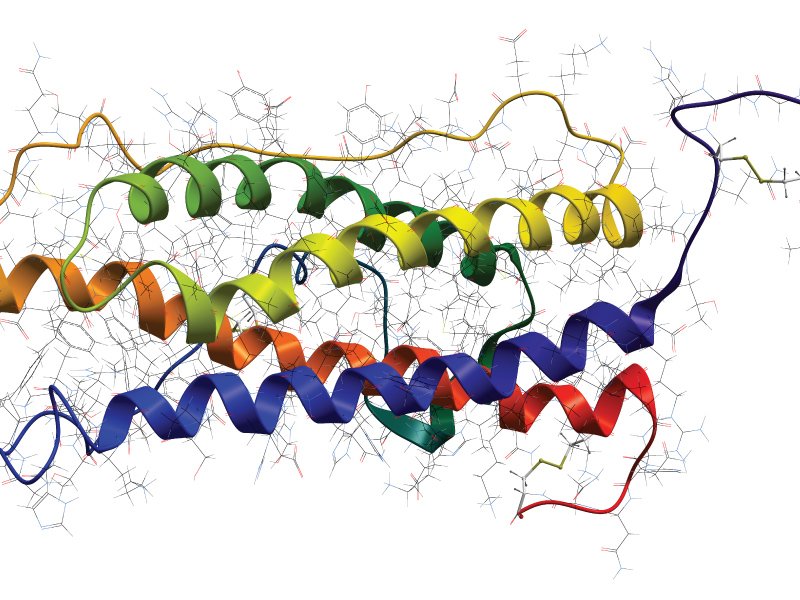
Prolactin Disorder
Prolactin Disorders Treatment in Ahmedabad
A prolactin hormone oversees lactation, the growth of specific breast tissues, and milk production. Prolactin levels in your blood that are higher than usual might result in various symptoms, including irregular periods, infertility, and erectile dysfunction. Your pituitary gland is where most of your prolactin is produced. It produces the hormone and secretes it.
The pituitary gland is a tiny, pea-sized gland situated beneath the hypothalamus at the base of the brain. It is a component of your endocrine system and is responsible for producing various crucial hormones, including prolactin. The hormone estrogen and the brain chemical dopamine control prolactin production and release from your pituitary gland. Your immune system, uterus, mammary glands, central nervous system, and uterus can also produce prolactin. The following elements may influence the production of prolactin in various tissues, according to every prolactin specialist in Ahmedabad:
-
- Nipple stimulation
- Exercise
- Stress
What is hyperprolactinemia?
Men and non-pregnant women with hyperprolactinemia have too much prolactin in their blood. In women, hyperprolactinemia is rather typical. Hyperprolactinemia affects about one-third of pregnant women with irregular periods but healthy ovaries. If this occurs, a woman may find it difficult to become pregnant, or her breasts may begin to produce milk outside of pregnancy (galactorrhoea). 90% of galactorrhoea females also have hyperprolactinemia. High prolactin levels prevent other hormones like progesterone and estrogen from being produced usually. It may alter or prevent ovulation (the release of an egg from the ovary).
Additionally, it may cause missed or irregular menstruation. Some women have high levels of prolactin but no symptoms. Infertility, impotence, decreased sex drive, galactorrhoea, and impotance are all symptoms of elevated prolactin levels in men. Untreated hyperprolactinemia might cause a man to produce less or no sperm at all.
How does prolactin affect your body?
Hundreds of biological processes are influenced by prolactin, but its two primary roles are as follows:
- Milk production and the growth of mammary glands within breast tissues
- Breastfeeding and lactation
Symptoms of Prolactin-related disorders
There may be no symptoms or indicators associated with Prolactin-related disorders. Hyperprolactinemia, or having too much prolactin in the blood, might result in symptoms. A vast tumor’s strain on the nearby tissues might also cause this. Some prolactinoma symptoms are unique to males or females because excess prolactin might interfere with the reproductive system. Prolactinoma in women can lead to:
- Infrequent or non-existent menstrual cycles
- Breast discharge that is milky while not pregnant or nursing
- Painful sex because of dryness in the genital area
- Excessive body and facial hair growth and acne
Prolactin-related disorders in men can lead to:
- Erectile dysfunction
- Lessening of face and body hair
- Less robust muscles
- Bigger breasts
Males and females with prolactinoma may experience the following:
- Infertility
- Bones that are fragile and easily breakable (osteoporosis)
- A decline in sexual interest
Tumor growth under pressure can result in the following:
- Vision issues
- Headache
- A decrease in the number of other hormones the pituitary gland produces
Premenopausal women are more likely to detect signs and symptoms early when tumors are still small. Most likely, missed or irregular menstrual periods are to blame for this. Postmenopausal women are more likely to experience symptoms later, when tumors are larger and more likely to result in headaches or visual issues. Males are also more likely to miss symptoms and warning indications.
Diagnosis
Your doctor may advise the following if you exhibit symptoms and signs of a prolactinoma:
- Blood testing: It can reveal whether an excessive amount of prolactin is being produced. They can also demonstrate whether the levels of additional hormones that the pituitary gland regulates are within the normal range. Females of childbearing age are often counseled to take a pregnancy test.
- Brain imaging: A magnetic resonance imaging (MRI) scan of your brain may enable your doctor to identify a prolactinoma.
- Vision tests: Vision tests can reveal whether a prolactinoma is impacting your vision.
Additionally, an endocrinologist doctor could suggest that you undergo additional testing with a doctor who specializes in treating conditions that impact the endocrine glands and hormones.
Consult Dr. Moxit Shah to find out the cause if you have any signs and symptoms that could be related to prolactinoma. In Ahmedabad’s Vishuddha
Diabetes Thyroid & Endocrinology Clinic, he practices endocrinology and is the best prolactin specialist in Ahmedabad.

